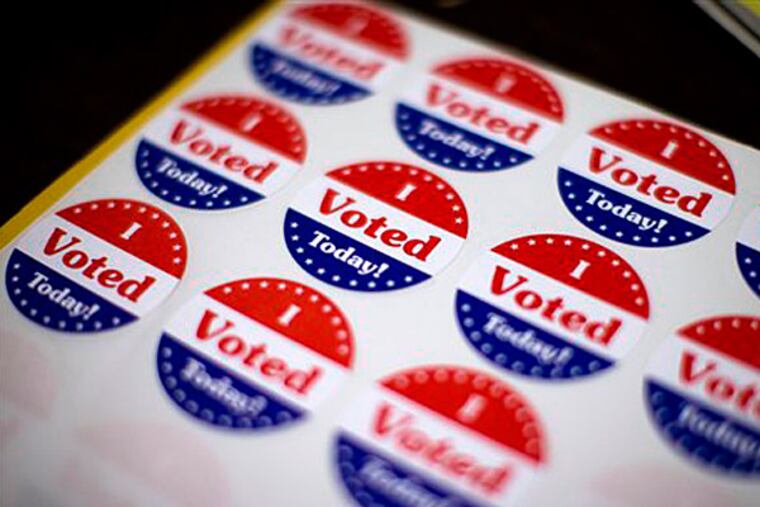Primary School: The big issues and the lesser known offices on the ballot on May 21st | Editorial
To help voters better understand the functions of some of these offices as well as what is at stake, this special “Primary School “ editorial series will introduce you to the key issues, offices, and players.

The upcoming May 21 primary promises to be ground-breaking for a number of reasons. The sheer number of candidates for City Council — more than 50 — is notable, as are the number of candidates running for less well known offices, like Commissioner and Register of Wills. To help voters better understand the functions of some of these offices as well as what is at stake, as well as some of the hot-button issues in the election, this special “Primary School “ editorial series will introduce you to the key issues, offices, and players.
» For more election 2019 coverage: The Philadelphia Primary Voter’s Guide
Register of Wills
This row office is entrusted with receiving wills for probate, collecting inheritance taxes, maintaining records of wills, estate inventories and other documents, and issuing marriage licenses. Two challengers are attempting to unseat a 40-year incumbent who is seeking his 11th term. The office has been notorious for being a patronage mills and due to its technical nature, it’s hard to vet the qualifications of candidates for the job. Then why do we have an elected Register of Wills?
» Read more in the Primary School editorial about the Register of Wills.
Sheriff’s Office
The Sheriff’s Office supports the courts — by transporting prisoners to court, serving writs and warrants, and conducting sheriff’s sales of real estate and other property because of tax delinquencies or foreclosures. Three democrat are challenging incumbent Jewell Williams who has been embroiled in sexual harassment allegations — two were already settled and a third is in the courts. WIilliams’ predecessor, John Green, was subject to a federal corruption trial and countless probe. Given the troubled history, and the fact that most of the sheriff’s responsibilities could be incorporated to city government and the courts, why do we have a sheriff’s office?
» Read more in the Primary School editorial about the Sheriff’s Office.
City Commissioners
A lot of democrats have their eyes on the two majority party seats in the row office charged with administering elections in Philadelphia; 13 candidates are running. Philadelphia is alone among big cities where elected officials actually run elections. Other major cities have a single appointed or elected official who oversees a central office, or an appointed board of elections. Should the next City Council enable a charter change to get rid of the elected officials overseeing our elections?
» Read more in the Primary School editorial about the City Commissioners.
Judicial elections
This year, voters will fill a total of nine vacancies in three courts. Traditionally, judges’ elections are low information races that are ultimately decided primarily by ballot position and the support of the Democratic Party. The lack of information is compounded by the fact that judges must show restraint in campaigning on their views and positions. Given the constraints of judicial elections, why aren’t judges appointed on merit instead?
» Read more in the Primary School editorial about the Judicial Elections.
The 10-year tax abatement
The 10-year tax abatement has become a linchpin in the conversation about gentrification and displacement in the city. Most of Philadelphia’s voters think it is bad for the city, and a majority of candidates running for City Council want to either reform or abolish it. But what exactly is it? Why do we have it? And what will happen in we change it -- or not?
» Read more in the Primary School editorial about the 10-year tax abatement
Soda Tax
Few issues have been more contended in Philadelphia politics in the past four years than Mayor Jim Kenney’s signature legislation -- a 1.5-cent-per-ounce levy on sweetened beverages such as soda, diet soda, iced tea, energy drinks, and some juice products to fund pre-K and community centers. The beverage industry has launched a massive campaign against it and many argue that the tax is harmful. This board still supports it. Read why.
» Read more in the Primary School editorial about the soda tax
Philadelphia’s homicide problem
Something peculiar is happening in Philadelphia. While overall crime is declining, and shootings fluctuate, the number of homicides has increased by 25 percent over the last four years. It is even more discouraging considering that other large cities are experiencing a decline in homicide rates. So what can Philly do to prevent homicides in the short and long term?
» Read more in the Primary School editorial about Philadelphia’s homicide problem
Poverty
We often hear that Philadelphia is the largest poor city in America, but what does that really means and who can do something about that? We took a deep dive unpacking what we talk about when we talk about poverty.